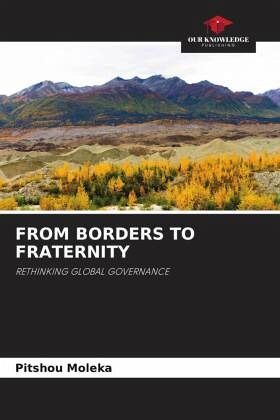
FROM BORDERS TO FRATERNITY
RETHINKING GLOBAL GOVERNANCE
Versandkostenfrei!
Versandfertig in 6-10 Tagen
30,99 €
inkl. MwSt.

PAYBACK Punkte
15 °P sammeln!
In an increasingly interconnected world, where borders seem to be disappearing and global problems know no geographical limits, the need for effective, fraternal global governance is becoming ever more pressing. The challenges we face, whether climate change, economic inequality or armed conflict, demand a collective approach and unprecedented international cooperation.Yet the current reality of global governance falls far short of these requirements. Existing international institutions, often inherited from a world order dating from the end of the Second World War, are criticized for their la...
In an increasingly interconnected world, where borders seem to be disappearing and global problems know no geographical limits, the need for effective, fraternal global governance is becoming ever more pressing. The challenges we face, whether climate change, economic inequality or armed conflict, demand a collective approach and unprecedented international cooperation.Yet the current reality of global governance falls far short of these requirements. Existing international institutions, often inherited from a world order dating from the end of the Second World War, are criticized for their lack of representativeness, inefficiency and legitimacy. The major economic and political powers often dominate decision-making, to the detriment of the voices of developing countries and marginalized communities.All the above points to the urgent need to rethink our approach to global governance.














